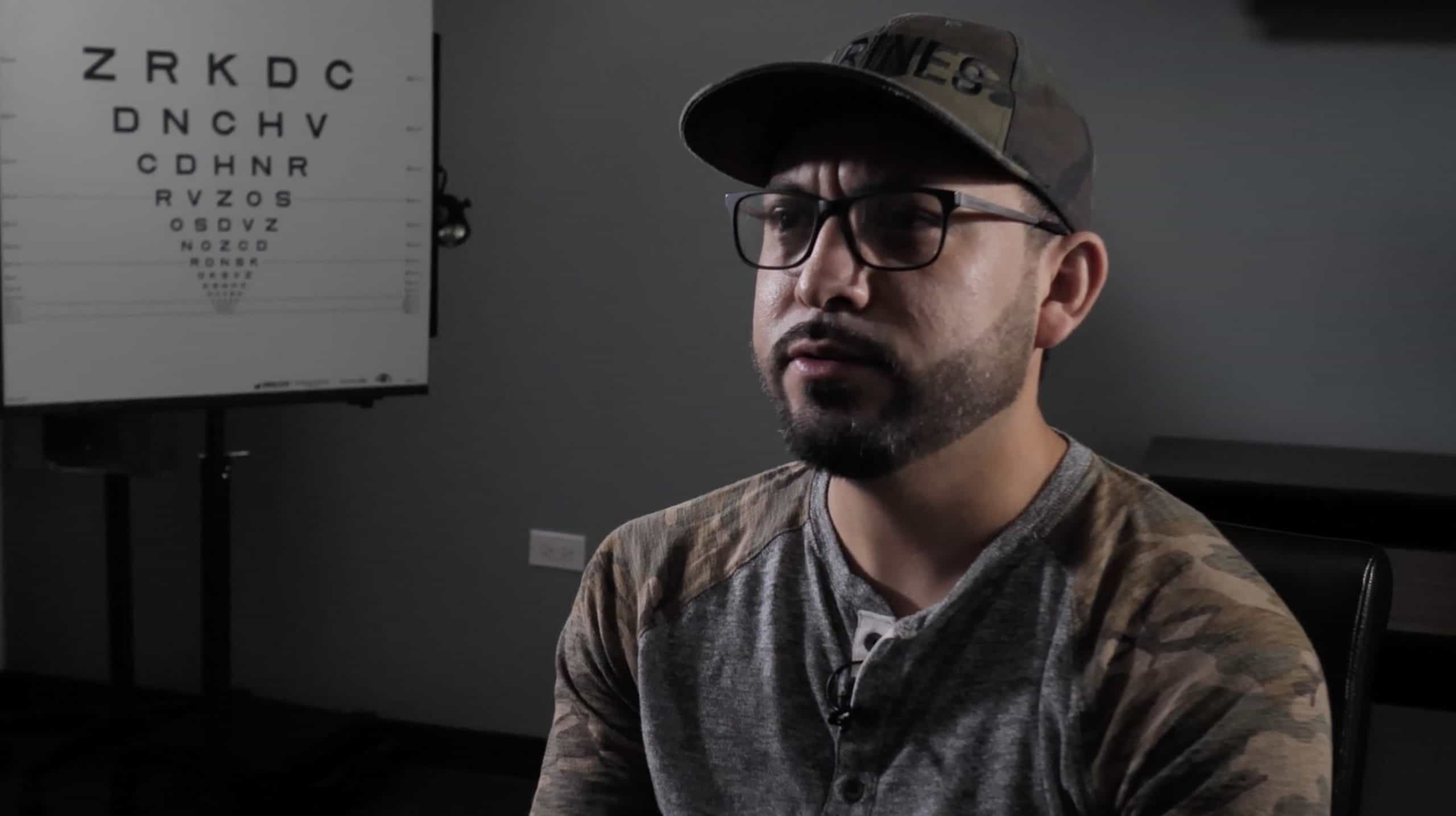It was a Facebook ad about the Mind-Eye Institute that put Marine veteran Ricardo Chaparro of Chicago on the road to “feeling normal again.”
Ricardo had been suffering more than 10 years from neurological symptoms related to his military service, including a stint in Iraq in 2005, but doctors and specialists could not diagnose his problem.
“After retiring from the service in 2007, I experienced concentration issues, light sensitivity, headaches, vertigo and a lot of anxiety,” states Ricardo. He says his problems prevented him from steady employment and affected his family relationships. “I underwent almost every kind of diagnostic test, including MRIs and brain scans, only to be told nothing wrong could be found. I was frustrated and thinking maybe all this is in my head. Then I see the Mind-Eye ad stating exactly what I am going through, and I decide to give it a shot.”
That “shot” – in the summer of 2020 – led to a pair of therapeutic “brain” glasses, which gradually diminished Ricardo’s debilitating symptoms.
“The glasses have helped me in so many ways,” Ricardo states. “I am again able to do things that I enjoyed in the past. I am no longer worried about symptoms. I can move on with my life.”
“Brain” glasses are not designed to sharpen eyesight to 20/20, explains Deborah Zelinsky, OD, founder and executive research director of the Mind-Eye Institute, based in the north Chicago suburb of Northbrook. “They are intended to improve patient comfort by rewiring dysfunctions in peripheral retina signals. The goal is to resynchronize brain circuitry between motor and sensory systems in order to improve a patient’s overall visual processing. The motor and sensory circuitries are meshed with other systems due to interactions of the retina directly with brainstem and limbic functions. Basically, the eye is connected to many parts of the brain other than simply eyesight.”
When I first met Ricardo, he was fragile. He had a lot of things going on with him – symptoms of post-traumatic stress disorder, brain fog and balance problems. His right eye would go in and out of focus,” recalls Ricardo’s Mind-Eye optometrist Carla Adams, OD. “After extensive testing by our team, we developed an eyeglass prescription that stimulated his peripheral retinas and right brain hemisphere by having slightly different lens powers in each eye.”
The result: “After about three months of wearing the glasses, Ricardo has better balance, improved concentration and less brain fog,” Dr. Adams says.
The Mind-Eye Institute is known worldwide for its work in bringing symptom relief to brain-injured patients by stimulating, modifying, and regulating patients’ visual processing. When functioning normally, visual processing enables people to understand and interact appropriately to the world around them, says Dr. Zelinsky. “If brain circuitry is disrupted due to injury or neurological disorders, like anxiety, people become confused about their surrounding environment and exhibit inappropriate reactions and responses to movement, sounds, and light.”
The Institute’s team of professionals help develop – or re-establish – patients’ visual processing capabilities by using therapeutic eyeglasses and other advanced mind-eye techniques. “Brain” glasses bend light in different ways across the retina, which is composed of brain tissue and is part of the central nervous system.
Ricardo describes his initial visit to the Mind-Eye Institute as “exciting.”
“For the first time, I found people who understood what I was dealing with and who could actually help me. In fact, all of the testing there made me realize how off my [sensory] communication was,” he says.
Equally impressive to Ricardo is that his first personal contact with the Mind-Eye Institute was a patient advocate who himself served in the military and is well attuned to what problems many veterans face once they retire from service.
Both the patient advocate and Dr. Adams “gave me the confidence that I was in the right place,” Ricardo says. “There are many other veterans out there who can truly benefit from the Mind-Eye Institute.”
Meanwhile, Ricardo is “happy I reached out to Mind-Eye. I have not felt this good for such a long time. These [brain] glasses have done so much for me. I am feeling normal again.”

